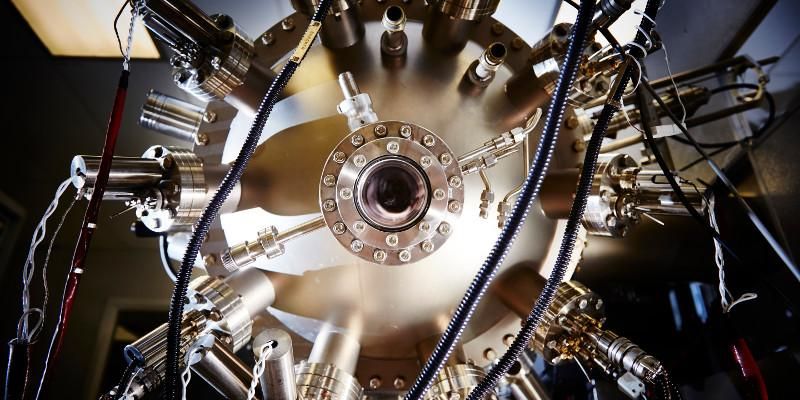
A new centre for research into the analysis and development of advanced materials has launched at the University of Leeds.
The Bragg Centre for Materials Research will work closely with leading researchers and industry to develop new and innovative solutions to real-world materials challenges.
The launch took place at the Centre’s inaugural research symposium. This event, attended by more than 150 people from across the University engaged with materials research, showcased the breadth and quality of academic activity carried out at the Bragg Centre.
The symposium also coincided with the first meeting of the Bragg Centre’s External Advisory Board.
Breaking down boundaries
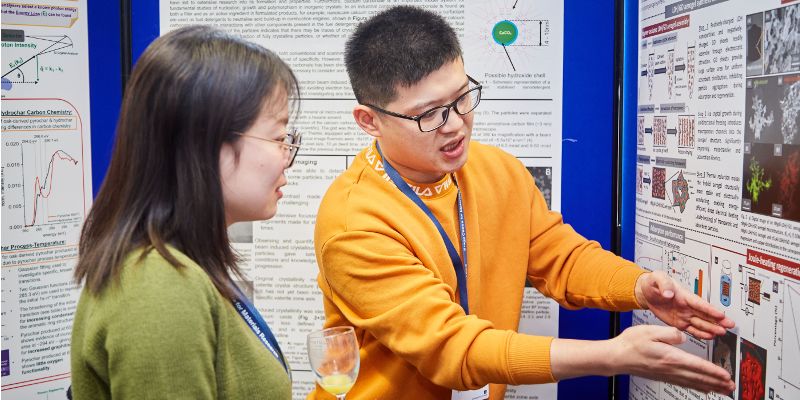
Academics across the spectrum of materials-related research will benefit from the Bragg Centre.
The Bragg Centre brings together engineers, physical scientists, and materials science researchers from across the University, further removing boundaries between disciplines and opening up new ways of working.
The Centre aims to discover, create, characterise, and exploit materials engineered at the atomic and molecular level. Its interdisciplinary research combines the fundamental understanding, design, modelling and fabrication of materials to lead to new devices, systems and applications.
Leeds' Nobel Prize winner
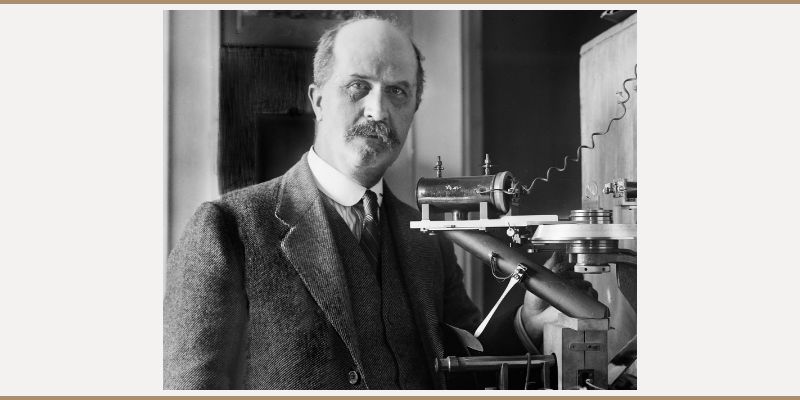
The Centre is named after the University’s former Cavendish Chair of Physics, Sir William Henry Bragg, pictured, who alongside his son, Sir William Lawrence, won the 1915 Nobel Prize for their development of X-ray crystallography techniques. It will be based in the new Sir William Henry Bragg building at the University, which is due to be completed in 2020.
Materials research
Research at the Centre will focus around the themes of analytical science; bionanotechnology; electronic and photonic materials; functional surfaces; multi-scale materials and soft matter.
The University of Leeds is a founding partner of the Henry Royce Institute, the UK centre for advanced materials research and innovation – the Institute’s work at Leeds is based in the Bragg Centre.
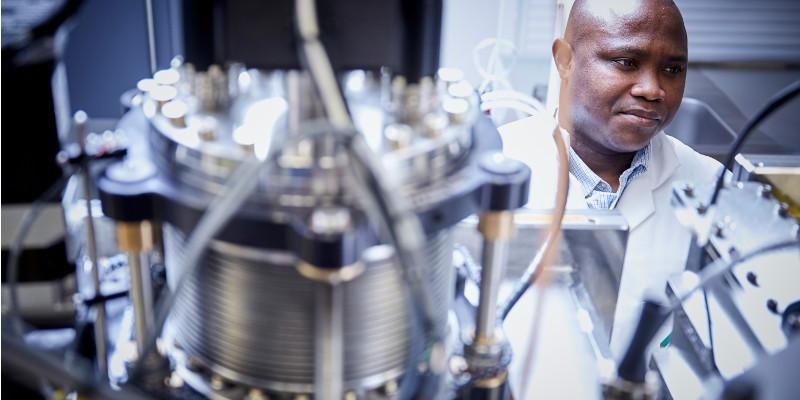
Researchers will have access to a number of high-quality facilities across the campus including:
- The Leeds Electron Microscopy and Spectroscopy Centre (LEMAS),
- A semiconductor and nanotechnology cleanroom,
- A multi-functional materials growth facility,
- An advanced coatings Physical Vapour Deposition system,
- Versatile X-ray Spectroscopy Facility.
Professor Giles Davies, Pro-Dean for Research and Innovation in the Faculty of Engineering, said: “The Bragg Centre provides an excellent opportunity to develop the University’s interdisciplinary research portfolio further, and to work in partnership with industry to deliver solutions to real-world challenges.
"We provide a unique environment, bringing together research capability, technical expertise, internationally-recognised facilities, and industrial collaborations.”
Shaping the strategic direction
The symposium also marked the first meeting of the Centre’s External Advisory Board, chaired by Professor Dame Julia Higgins.
The Board comprises prominent UK and international academics and industry figures. It will help advise the University on the Centre’s strategy on areas such as research direction, industrial collaborations, and facilities.
Professor Davies added, “We are pleased that Professor Higgins has agreed to take up the position of Chair of the External Advisory Board.
"She is a distinguished researcher and has made an extraordinary contribution to physics and materials science. She will make an excellent Chair, and I know she will challenge us to create an exceptional research environment.”
A highly-respected physicist and polymer scientist, Professor Higgins has had a distinguished academic career.
For more than 40 years she has investigated the behaviour of polymers, pioneering the application of neutron scattering techniques.
She is currently Emeritus Professor and Senior Research Investigator at Imperial College London, and President of the Institute of Physics.
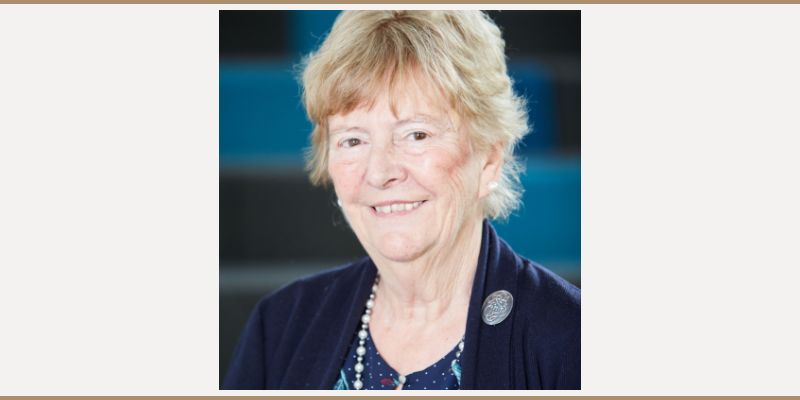
Professor Higgins, pictured above, said, “The Bragg Centre is a unique opportunity to develop interdisciplinary working across the physical sciences. It will allow the University and the UK to foster ever-closer links with industry and to conduct research that addresses some of this century’s key challenges.
“Bringing together so many excellent facilities will not only benefit researchers, it will have a direct and positive impact on student teaching. It is an exciting prospect; I am looking forward to helping shape the outstanding research being conducted at Leeds.”
In 2010, Professor Higgins was named as one of six Women of Outstanding Achievement in Science, Engineering and Technology by the UK Resource Centre for Women in Science. Throughout her career she has encouraged women to take up careers in STEM subjects. She is a former chair of the Athena Project, a former trustee of Daphne Jackson Trust and a patron of the non-profit Women in Science and Engineering (WISE).
Further information
Researchers or businesses wishing to work with the Bragg Centre's academics or use its facilities should email the Bragg Centre at braggcentre@leeds.ac.uk